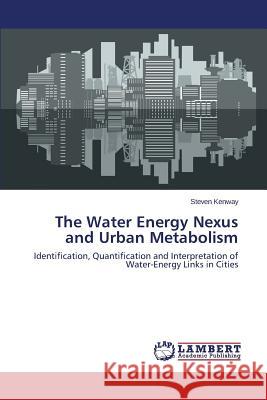The Water Energy Nexus and Urban Metabolism » książka
The Water Energy Nexus and Urban Metabolism
ISBN-13: 9783659327339 / Angielski / Miękka / 2015 / 104 str.
This book addresses the challenge of rapid growth in the water and associated energy demand of cities. Australian cities are used to quantify how water in cities accounts for 8% of Australia's greenhouse gas emissions and 9% of total Australian primary energy use. Residential water use, largely for heating water, comprises 45% of the effect. Urban metabolism theory is developed and used in mass balance analysis to derive quantitative performance indicators for the management of urban hydrology. Priority areas for management and policy formulation are articulated. The thesis provides a new method set and viewpoint for urban water management. It will help solve urban water problems at the core, rather than trading them for energy. This could be highly valuable in a future of water and carbon constraints and escalating energy costs.
This book addresses the challenge of rapid growth in the water and associated energy demand of cities. Australian cities are used to quantify how water in cities accounts for 8% of Australias greenhouse gas emissions and 9% of total Australian primary energy use. Residential water use, largely for heating water, comprises 45% of the effect. Urban metabolism theory is developed and used in mass balance analysis to derive quantitative performance indicators for the management of urban hydrology. Priority areas for management and policy formulation are articulated. The thesis provides a new method set and viewpoint for urban water management. It will help solve urban water problems at the core, rather than trading them for energy. This could be highly valuable in a future of water and carbon constraints and escalating energy costs.











